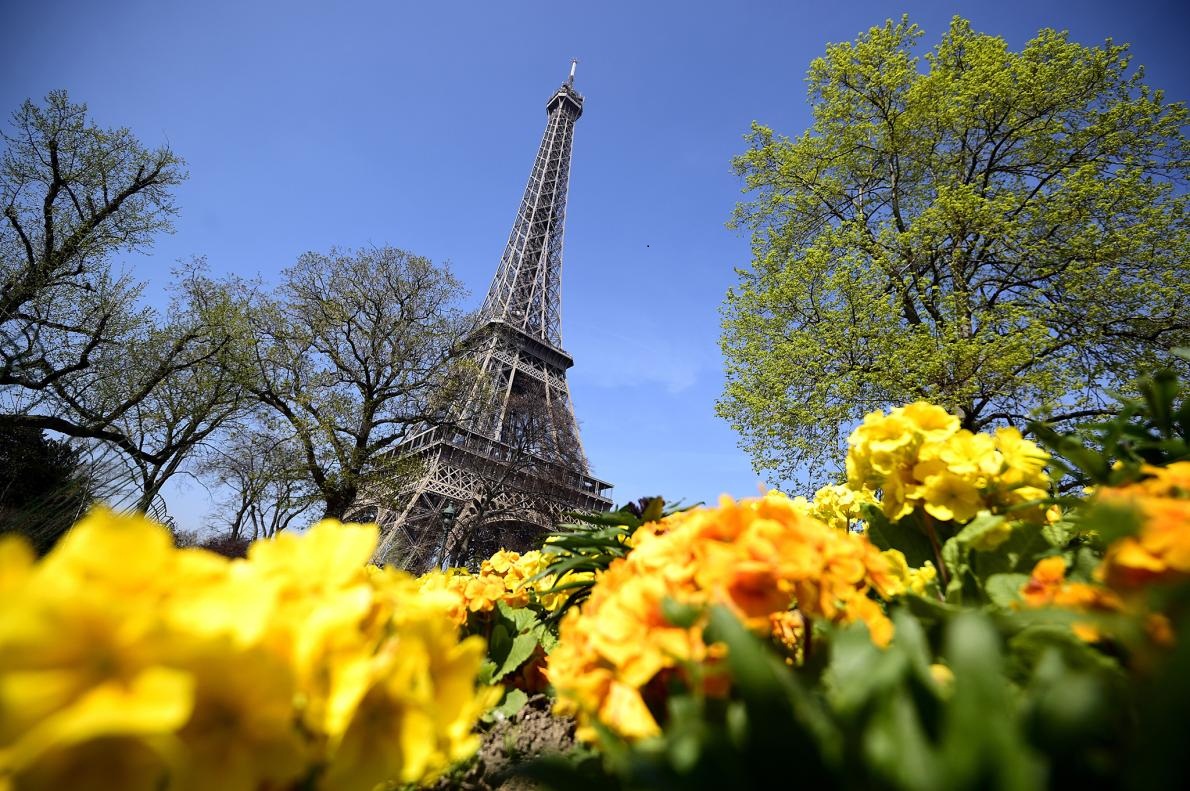Summer in March? Warming Climate Alters Europe’s Seasons

Earth’s seasonal clock is out-of-whack. Summers in Europe are coming ten days ahead of schedule, and could be up to 20 days early by century’s end if the current pace of carbon emissions continues, according to a new study by French scientists published Monday.
And it’s not just Europe. Trees leafing out sooner, birds shifting migrations and butterflies arriving early provide evidence of climate change altering seasonal weather conditions across the Northern Hemisphere.
Europe's first day of summer conditions has moved up 10 days over the past four decades, according to the study published in Nature. The annual switch from winter to summer weather patterns—which had occurred around April 10 at the start of the 1960s—abruptly began jumping forward during that decade. By 2010, the switch was occurring on March 30. And by 2100, the scientists project, Europe’s “summer” will arrive on March 25, approximately 20 days earlier than in pre-industrial times.
The impacts are showing up in earlier budburst for grapes in France, flowering cherry trees in Switzerland, blooms of summer flowers in England and other yearly seasonal events.
The accelerated summers correspond with a buildup of heat-trapping gases over the past half-century, says study coauthor Julien Cattiaux, a climate scientist with France’s National Center for Meteorological Research. By speeding up the winter snow melt in Eastern Europe and cutting cold air circulation across the continent, atmospheric warming has played a significant role in summer weather systems setting up early, he says.
Kevin Trenberth, a climate scientist with the National Center for Atmospheric Research, finds some shortcomings with the new study, including its oversimplified two-season analysis and use of models that don’t fully incorporate complex weather processes. But he notes that several other studies show springs are arriving early in Europe.
Meteorological research conducted elsewhere also finds evidence that seasonal conditions are changing.
In the United States, springs and summers—defined not by the calendar but by specific temperature thresholds and circulation patterns—have been arriving more than a day-and-a-half earlier every decade since 1948, according to a recent International Journal of Climatology study. Autumn and winter conditions, meanwhile, have grown accordingly late.
The amount of change varies by location, says lead author Michael Allen, a climatologist at Old Dominion University in Norfolk, Virginia. But it is greatest along the Atlantic Gulf and the California coast. There, the start of summer has advanced more than three days per decade.
In China, an earlier study of daily temperature data found summers there crept forward nearly six days between 1951 and 2000, while the winter season shrank by 11 days.
Extra days of T-shirt weather may sound good to folks who are still shoveling snow or slogging through April muck. But even small changes to the seasonal clock can set off a volley of ricocheting effects in nature, says Allen.
“If you think about food production, if we shift these seasons backward or forwards, you impact blooming cycles, and that ties into insects and pollination and all these interacting phenomena that really rely on seasons,” he says.
Birds are one of the harbingers of changing seasonal conditions. Last week, researchers reported that global warming has been playing favorites with birds in Europe and North America over the past three decades, with significant consequences for robins, wrens, and a multitude of other common species, according to a study published in Science.
Populations are increasing for species whose preferred habitats are in sync with the changing conditions, such as Cassin's kingbird, a southwestern native now expanding its range as Colorado and Wyoming warm up. But those whose habitats are being squeezed have waned, such as the Canada warbler, whose damp forest nesting-grounds are now drying up, and the white-throated sparrow, whose northern breeding-grounds are shrinking. Still others, such as the American robin, are declining in warming southern locations like Louisiana but increasing in the Dakotas.
The researchers compared annual bird counts for more than 500 species conducted on the two continents from 1980 to 2010 with climate records for the same period, and grouped species by whether their habitat was gaining or losing under climate change. The large-scale, consistent responses they revealed are likely also underway among bees, butterflies, and a variety of other creatures across the globe, according to the authors.
In Estonia, scientist Peeter Nõges sees the disturbed seasonal clock reflected in his country’s lakes. For much of the past decade, an abnormally early heat wave has hindered the lakes’ spring overturn — an annual process that mixes the water column and carries oxygen down to the depths. As a result, major fish kills have upset a region where fishing is important for the economy and recreation.
“Although it is good to have nice weather in spring, people cannot really enjoy it,” says Nõges, a limnologist with the Estonian University of Life Sciences. “The perception is that the weather is wasting its beauty and warmth in this period.”
Read more: http://news.nationalgeographic.com/2016/04/160404-climate-change-Europe-early-summer/

